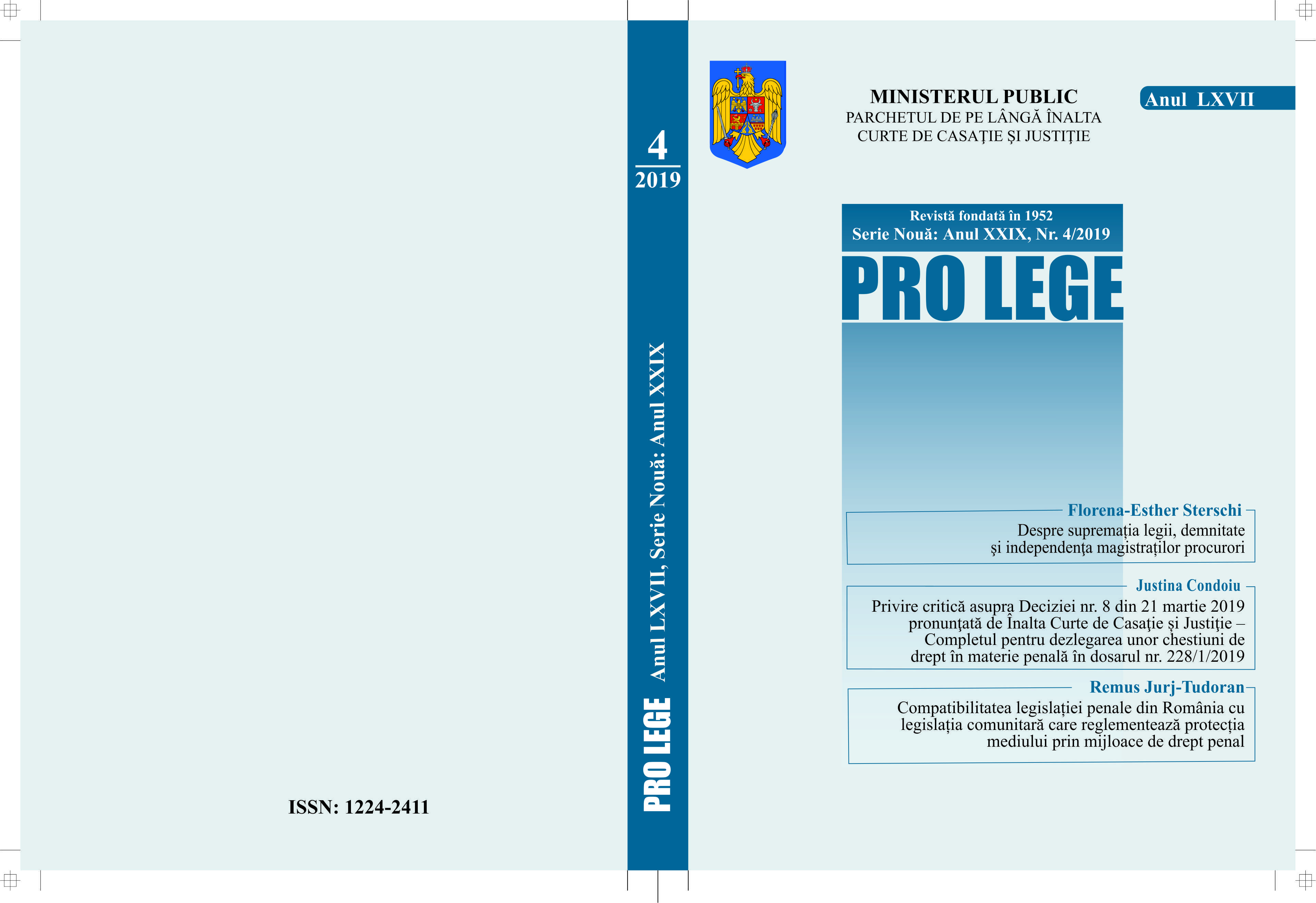Decizia Curții Constituționale a României nr. 417 din 3 iulie 2019 asupra cererii de soluționare a conflictului juridic de natură constituțională dintre Parlamentul României, pe de o parte, și Înalta Curte de Casație și Justiție, pe de altă parte
The decision of the Constitutional Court of Romania no. 417 of July 3, 2019 on the request for the resolution of the legal conflict of constitutional nature, between the Parliament of Romania, on the one hand, and the High Court of Cassation and Just
Author(s): Remus Jurj-TudoranSubject(s): Law, Constitution, Jurisprudence, Civil Law
Published by: Universul Juridic
Keywords: specialized panels; corruption offenses; rthe ight to a fair trial;
Summary/Abstract: Article 29 para. (1) of the Law no. 78/2000 provides that for the first instance trial of the offenses provided for in this law, specialized units are constituted, which means that the judges are and must be specialized, but no provision of the law establishes the specialization of law of the judges of the High Court of Cassation and Justice in the matter of judging corruption offenses. For this, in the silence of the law, but applying it, it was the responsibility of the Superior Council of Magistracy/the Management Board of the Supreme Court, to elaborate a set of rules that guarantee the specific status of these judges, rules which can be mentioned: integrity examination, specific knowledge, specialized training, relevant experience in the field, elaboration of specialized works. The lack of training courses does not constitute a reason and does not justify the non-establishing of the specialized units. The constant refusal of a state authority, either it being the High Court of Cassation and Justice, to apply a law, does not imply the fact that it is obsolete, in the sense that the law would no longer benefit from the authority initially conferred by the legislature, because of of its failure to reflect the social reality. The non-establishment by the High Court of Cassation and Justice of the specialized judicial units for the first instance trial and regarding the offenses provided by the Law no. 78/2000 for the prevention, discovery and sanctioning of the corruption acts, contrary to those provided by the Art. 29 para. (1) of the Law no. 78/2000, as amended by the Law no. 161/2003, generated a constitutional legal conflict between the Parliament, on the one hand, and the High Court of Cassation and Justice, on the other.
Journal: Revista Pro Lege
- Issue Year: LXVII/2019
- Issue No: 4
- Page Range: 133-147
- Page Count: 15
- Language: Romanian

